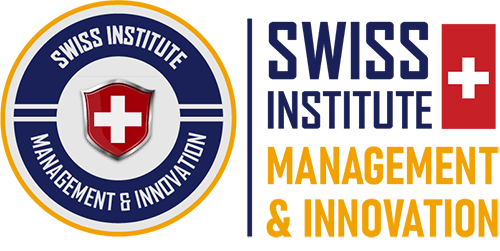The most Practical management ProgramsDual Master Degree from Horizons University and SIMI Swiss
SIMI believes the MBA programs must have involved in the learner, could solve their real-life management problems and the International Master of Business Administration of SIMI is focus exactly on these.
The aim of the iMBA is to develop and enhance the understanding of emerging theories and practices on contemporary management with an increasing emphasis on strategic and international management. The iMBA facilitates a critical exploration of the role of business in a complex multi-stakeholder society, and the connectedness of business with society and the increasingly global and networked economy.
The program will provide participants with the leadership and managerial behaviors, essential skills as well as the advanced knowledge and understanding of international business and strategic management.
The program follows a work-based and problem-based learning approach, and participants will be expected to demonstrate how they have utilized their learning and development in solving business-related issues and problems by integrating and building on perspectives from the course and the literature, and their own contexts.
After finish the International MBA, learners could earn the International MBA of Horizons University, France, and the Master of Management with other majors from SIMI Swiss.
Students graduating from the iMBA will be able to:
- Use self-assessment, reflection, evaluation, feedback, and developments in theory and evidence-based practice to improve their ethical business practice in a variety of
- Apply a deep understanding of relevant theories and practices to predict outcomes and create business solutions in a complex environment.
- Communicate key issues effectively and creatively using numerical, graphical, oral, and written
- Behave, lead, and governs organizations in an ethical
- Setting strategy, direction and clear sense of purpose and driving strategic intent fvision, providing a or an organization.
- Cultivating an innovative, entrepreneurial, and supporting corporate culture to deliver business performance, including sustained competitive advantage.
Teaching and Learning strategies:
Central to the philosophy of the program is the desire to produce thinking – reflective managers who can use their theoretical knowledge creatively in a variety of contexts, bringing to bear coaching, mentoring, performance management, innovation, and strategic management skills.
Approach:
Student-centered learning will be strongly encouraged and developed. Reflective Learning, Cooperative Learning, and Problem-Based Learning will be infused into the teaching-learning and assessment strategies.
Online Learning, case analysis and self-directed learning resources will be available to support the delivery and attainment of the intended learning outcomes.
The program will, therefore, “progress subject knowledge” and will incorporate informed dialogue, and self-development. It should be noted that the focus will be on facilitating learning rather than teaching and, in this respect, the strategy is designed to facilitate the “deep l participation and self-exploration and discovery of knowledge by students.
Central to the philosophy of the program is the desire to produce thinking -reflective managers who can use their theoretical knowledge creatively in a variety of contexts, bringing to bear initiative, leadership and strategic management skills.
Assessment Strategy:
Assessment Aims and Strategy:
The aim of the assessment strategy is to identify formal practices and procedures for assessing and appraising the performance of the iMBA students in order those judgments and decisions can be reached concerning:
- The progression of students through the programme.
- How students have met the programme learning outcomes through a combination of the individual module learning outcomes.
- The provision of feedback information to students concerning their performance and how they adhered to the generic assessment criteria and the module-specific assessment criteria.
- The award of M level credits for individual modules.
The underpinning principles which drive the assessment strategies adopted for this programme are the profile of the target students and the programme itself (its philosophy and associated learning outcomes). Assessment will normally be based on the candidate successfully demonstrating achievement of an appropriate combination of the following criteria which are aligned to the descriptors for Level 7 Master degree qualifications:
- A systematic understanding of a substantial body of knowledge, and a critical awareness of current problems and/or new insights, much of which is at, or informed by, the forefront of the academic discipline, field of study, or area of professional practice;
- A comprehensive understanding of methods and techniques applicable to the practical work-based management issues which require solutions and improvements;
- Originality in the application of knowledge, together with a practical understanding of how established establish, identify and solve management problems;
- The ability to evaluate and criticize received opinion;
- The ability to make reasoned judgements whilst understanding the limitations on judgments made in the absence of complete data; and
- The ability to communicate the results of the programme of research as demonstrated in the style and overall presentation in a professional
In designing this program, the prior qualifications and corporate experiences of participants are taken into consideration in order to ensure a program that builds on their prior knowledge and skills.
The iMBA has a total of 90 ECTS credits and comprises of 6 taught modules at 10 ECTS credits each and a Work-Based Project at 30 ECTS credits. The modules are:
- Managerial Accounting; or Cross-Cultural Management
- Strategic Management
- Strategic Human Resource
- Corporate Governance, Ethics and CSR
- Business Innovation and Entrepreneurship
- Leading Change
An applicant may be admitted based on evidence to suggest that he/she will be able to fulfill and benefit from the objectives of the program and achieve the standard required for the award. Criteria used in considering admissions to the program include candidates’ language proficiency, working experience, academic and professional qualifications.
Summary of Entry Requirements
- A Bachelor’s Degree qualification in any subject from a recognized
- A professional qualification equivalent to a degree and a minimum of two years of working
- Mature and high potential candidates without a degree or equivalent qualifications but hold Diplomas or Advanced Diplomas with more than six years of work experience of which at least two years are at supervisory/managerial
- Mature and high potential candidates without Diploma qualifications but with more than eight years of work experience of which at least three years are at supervisory /managerial
- Demonstrate English Language proficiency in order to participate in the programme taught in
Advanced Standing / Exemptions / Credits Transfer (APL)
Consideration for the above for students admitted onto the program may be considered either at the beginning of a program, or beyond the beginning of a program, through an assessment of that student’s prior learning, whether certificated or un-certificated. The process for making such a decision is known as the Accreditation of Prior Learning (APL) is a matter of academic judgment exercised by the appointed panel considering applications and approvals of APL.
Where cohorts of students are to be admitted with advanced standing on a regular basis, the arrangement should be subject to an Academic Progression Agreement.
The International MBA is the dual Degree programs. After finish, the students will get the International Master of Business Administration from Horizons University, France and the Master of Management of the Swiss Institute of Management and Innovation (SIMI).
Each of the Qualification bodies is recognized and accredited. This will help the learners more oppotunities to get on the practical knowledge and also have more chance for labor markets.
Accreditation & Recognized of Horizons University, France

Ministry of Education, France
Paris Regional Professional Training Control Department
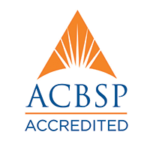
Accreditation Council for Business Schools & Programs (ACBSP)
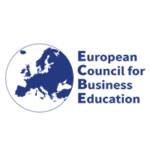
European Council for Business Education (ECBE)
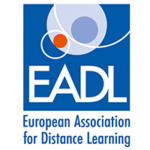
European Association for Distance Learning (EADL)
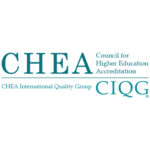
CHEA - Council for Higher Education Accreditation
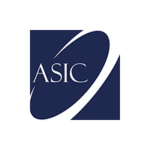
Accreditation for International Schools, Colleges, & Universities, ASIC, UK
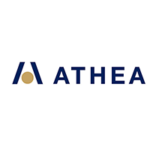
ATHEA - Institutional Member

